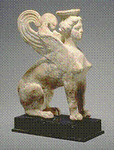This is hilarious--like something from a Saturday Night Live skit:
The Elvis version of Mr. Potato Head will be released for Elvis Tribute Week, according to a Graceland spokesman.
Photo by PPW Toys
Mr. Potato Head Elvis Presley Figures to Launch in August of 2010
From http://www.elvis.com/news/full_story.asp?id=2297
Elvis fans, toy collectors and pop culture enthusiasts will spend much of this summer anticipating the launch of the Mr. Potato Head Elvis Presley collectible figures from PPW Toys, under license from Hasbro, Inc. and Elvis Presley Enterprises.
Mr. Potato Head appeared as KISS last year, and this year he is ready to take on the king of rock 'n' roll. A series of Mr. Potato Head collectible figures will be released, each with a variety of costumes, instruments and other iconic components representing Elvis' most memorable performances.
The first spud to be released this August in tandem with Elvis Week events at Graceland in Memphis and will feature Elvis' famous white jumpsuit, microphone and guitar. A second version with Mr. Potato Head wearing black leather from Elvis' 1968 Special Performance will be released during the 2010 holiday season. Components such as hairstyles, costumes, faces and musical instruments will be compatible with every version, so fans can mix and match the styles with hilarious results.
The Mr. Potato Head Elvis Presley collectible figures will not only appeal to kids, but these figures will also be in demand by music fans and pop culture collectors of all ages. The Mr. Potato Head Elvis Presley collectible figures will be available at specialty retailers and e-tailers.
Created in 1952, Mr. Potato Head, the first toy to be featured in a television commercial, became an instant hit with youngsters. In the past 58 years, the beloved character has emerged as an American icon, a true evergreen brand with broad demographic appeal.
Hasbro licensee PPW Toys suits up MR. POTATO HEAD as Elvis Presley for a unique co-branded product. An Elvis tribute artist shows off the new collectible during a launch event at Licensing International Expo 2010 in Las Vegas.











